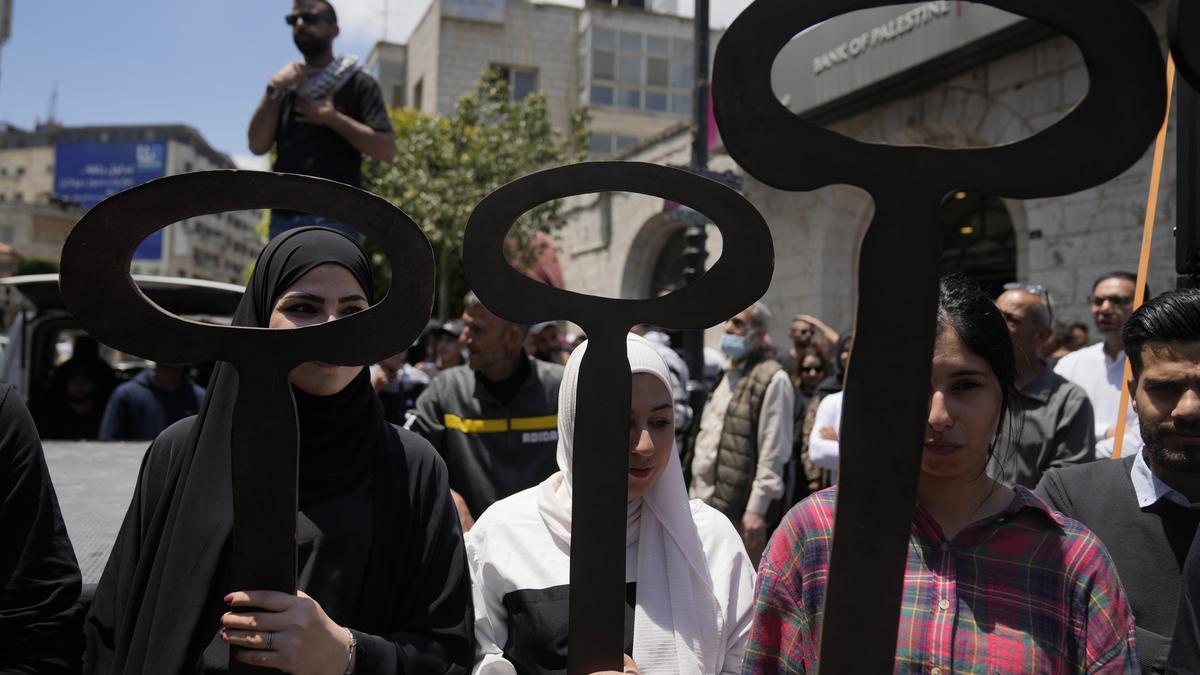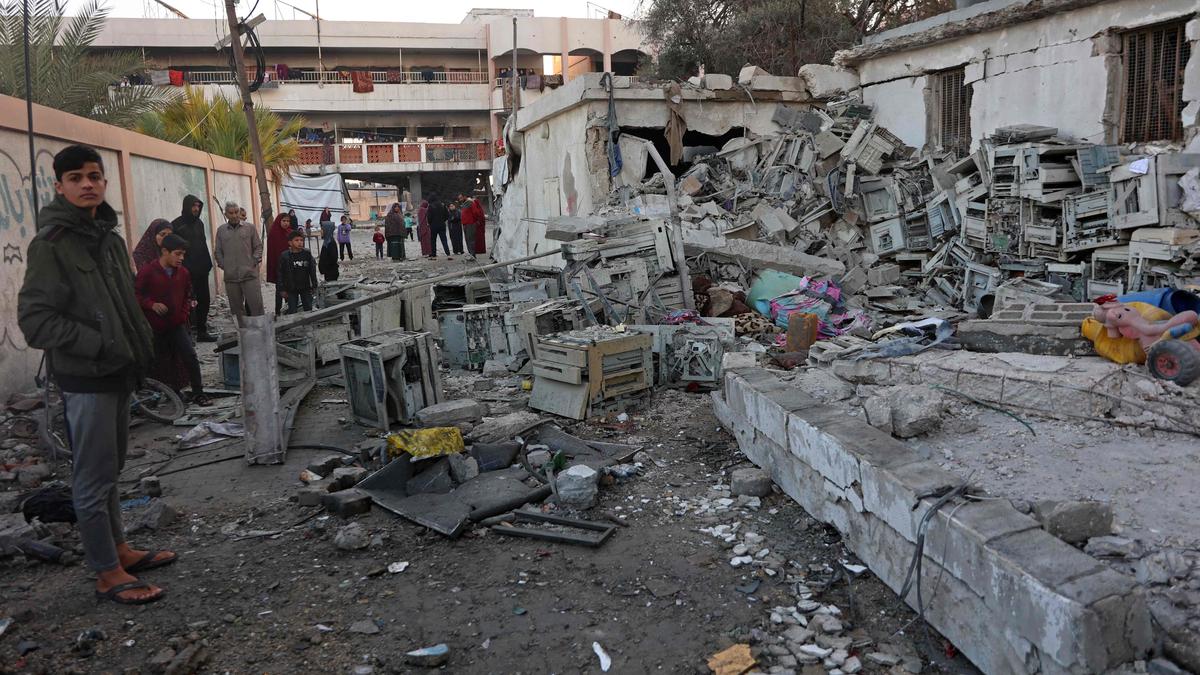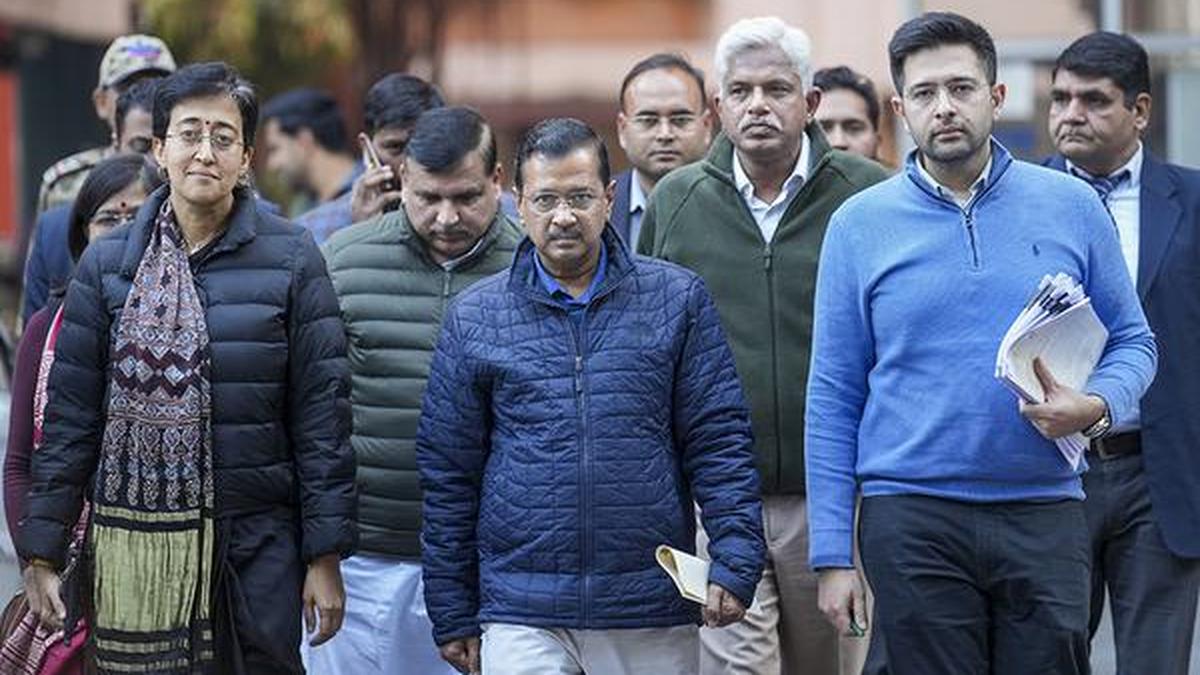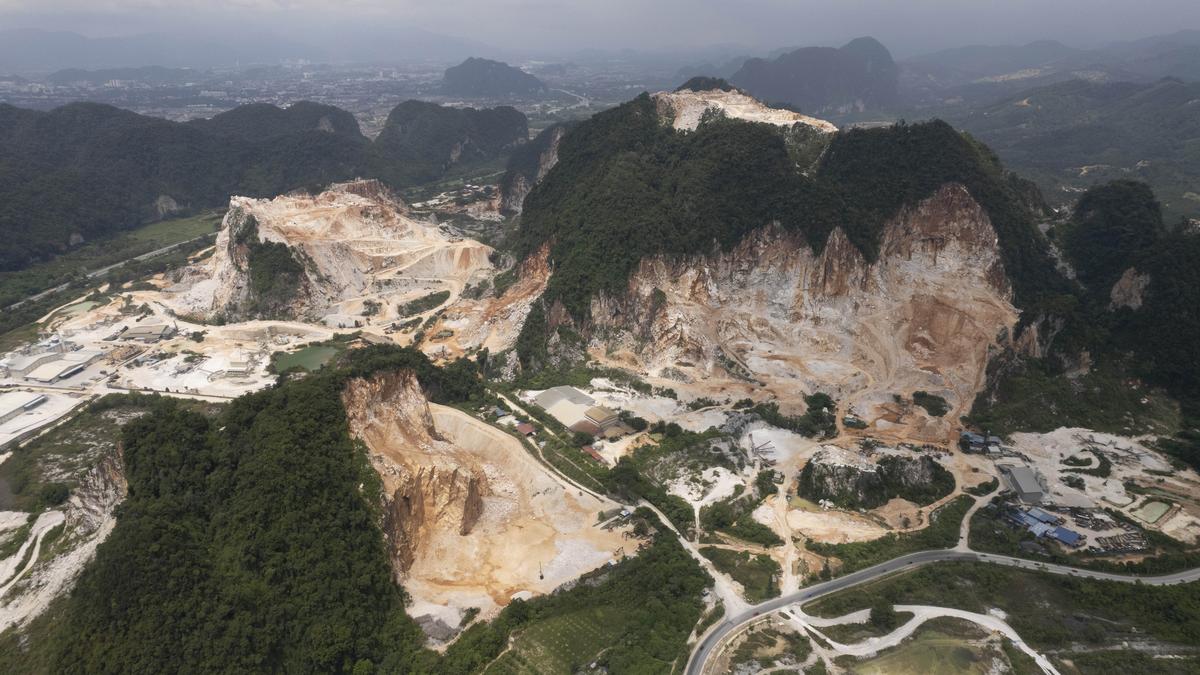As Israel keeps up its campaign against Hamas, Arab leaders are mapping out ways to support post-war Gaza, placing one major condition on their involvement: a pathway to Palestinian statehood.
Major obstacles lie ahead in gaining the support of both U.S. President Joe Biden and the Israeli government, which is currently led by hawkish Prime Minister Benjamin Netanyahu, a staunch opponent of the two-state solution.
Also read: Israel’s Netanyahu rejects UN backing of Palestinian statehood bid
But the Arab quintet of the United Arab Emirates, Saudi Arabia, Qatar, Jordan and Egypt have made clear that their financial and political support, which would be crucial to the future of the shattered Gaza Strip, comes at a cost.
“We have coordinated on this closely with the Palestinians. It needs to be truly a pathway to a Palestinian state,” Saudi Foreign Minister Prince Faisal bin Farhan told a World Economic Forum meeting in Riyadh last month.
“Without a real political pathway… it would be very difficult for Arab countries to discuss how we are going to govern.”
It is not the first time Arab leaders have come together to chart a path towards a two-state solution, the cherished goal that they believe could defuse tensions in West Asia and help usher in a period of prosperity.
But with the Israel-Hamas war hobbling regional economies and spilling over into neighbouring countries, there is both urgency and opportunity.
Last month, on the sidelines of the World Economic Forum, European and Arab Foreign Ministers met to discuss how to advance the two-state solution.
Gaza will also be top of the agenda when leaders from the 22-member Arab League meet in Bahrain on Thursday.
Two goals
Arab countries are “pressuring the United States to achieve two things: establish a Palestinian state and recognising it in the United Nations”, said an Arab diplomat who is familiar with the talks.
“What is currently hindering these intensive efforts is the continuation of the war and Netanyahu’s intransigent rejection,” said the diplomat, speaking on condition of anonymity.
Arab leaders “have been trying to work with the Biden administration to mutually support the so-called day after” plan, said Sanam Vakil, director of the Middle East and North Africa programme at Britain’s Chatham House think tank.
Central to their plan is the reform of the Palestinian Authority (PA) to clear the way for a reunified administration in the occupied West Bank and the Gaza Strip. The PA has had almost no influence over Gaza since Hamas militants wrestled control of the territory from the Fatah movement of President Mahmud Abbas in 2007.
Six months of Israel-Hamas war: revisiting 10 key moments in pictures
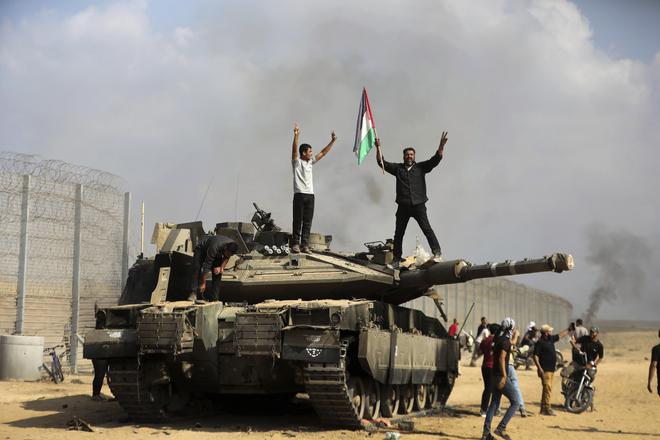
At dawn on October 7, at the end of the Jewish holiday of Sukkot, hundreds of Hamas fighters infiltrate Israel from Gaza by land, sea and air. They kill civilians in the streets, in their homes and at a desert music festival, and attack troops in army bases. They bring around 250 hostages back to Gaza, some of them now dead. Israel vows to destroy Hamas and begins bombing Gaza.
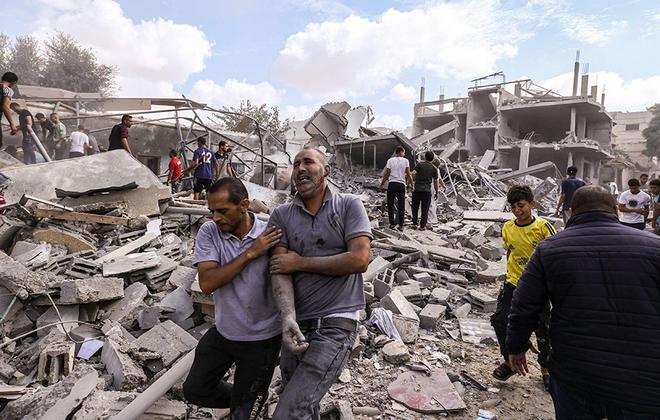
On October 13, Israel calls on civilians in northern Gaza to move south within 24 hours, declaring the north, which includes Gaza City, a war zone. Hundreds of thousands of Palestinians flee to the south of the Gaza Strip as entire districts in the north are razed to the ground.
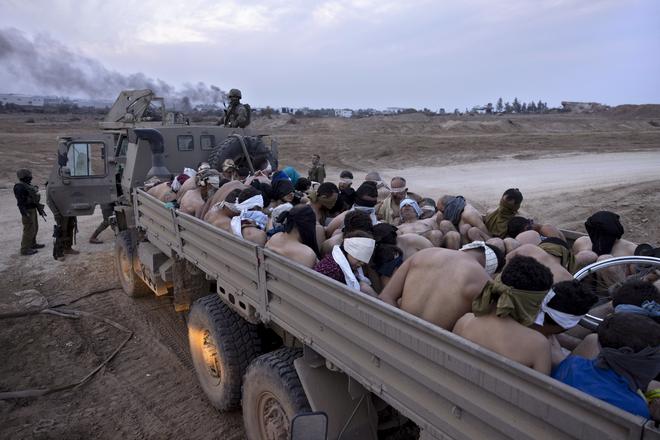
On October 27, Israeli tanks roll into Gaza at the start of a ground offensive. The troops fight their way towards Gaza City.
On November 15, Israeli troops launch a night-time raid on Al-Shifa hospital, Gaza’s biggest medical facility where bodies had been piling up after food, fuel and anaesthetics ran out. The raid causes an international outcry. Israel claims Hamas is running a command centre below the hospital, which the armed group denies.
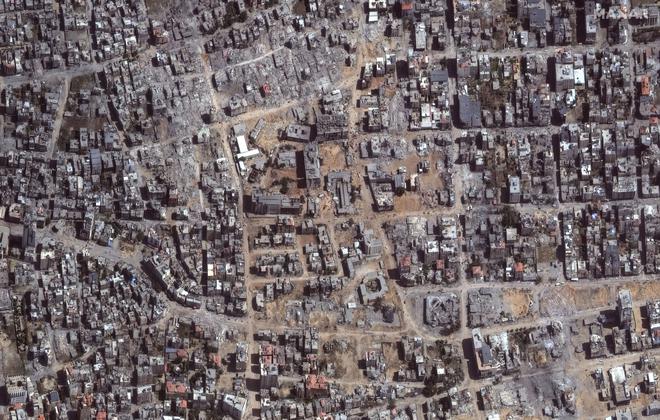
This satellite image provided by Maxar Technologies shows an overview Al Shifa hospital and surroundings in Gaza City on April 1, 2024. In March, Israel again targets the hospital in an intensive two-week operation that leaves hundreds dead and the complex in ruins.
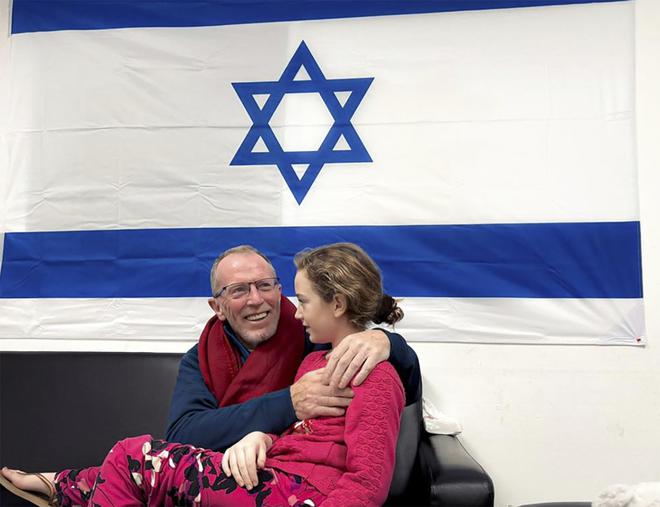
On November 24, a week-long truce between Israel and Hamas negotiated in talks mediated by Qatar goes into effect. Hamas releases 80 Israeli hostages over seven days in return for 240 Palestinians held in Israeli prisons. Twenty-five other hostages, mainly Thai farm workers, are released outside of the deal. In this photo provided by the Israeli Army, Emily Hand, a released hostage, reunites with her father on November 26, 2023, in Israel.
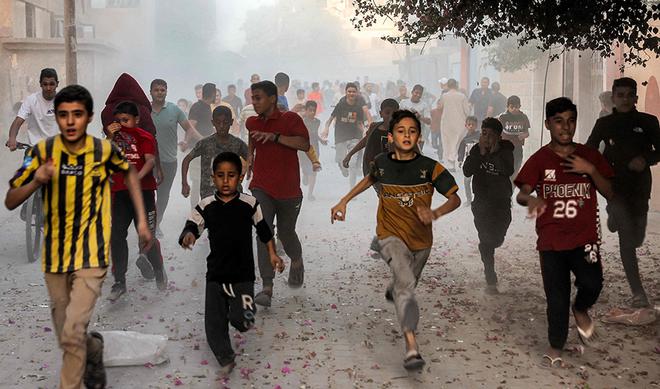
As part of week-long truce, Israel allows more aid into Gaza during the pause but the humanitarian situation remains dire. When the war resumes, Israel expands its actions into southern Gaza. Seen here are Palestinian children running as they flee from Israeli bombardment in Rafah in the southern Gaza Strip on November 6, 2023.
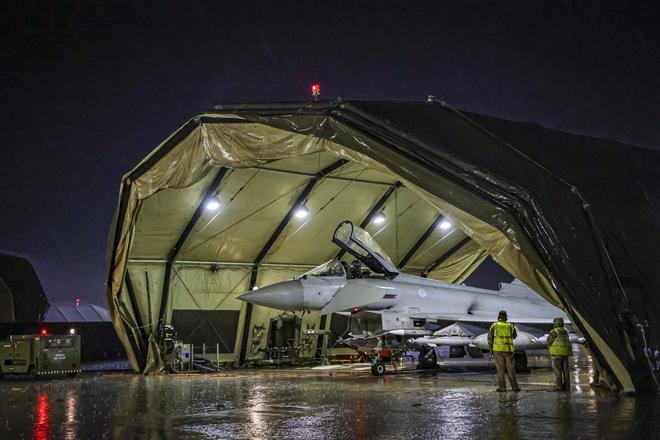
On January 12, the US and Britain launch air strikes on targets in rebel-held Yemen after weeks of attacks on Red Sea shipping by the Iran-backed Houthis acting in solidarity with Palestinians in Gaza. The strikes add to fears of a regional war.
In an interim ruling on January 26 in a case brought by South Africa, the International Court of Justice finds it “plausible” that Israel’s acts could amount to “genocide”. The world’s top court orders Israel to do “everything” to prevent any acts of genocide in Gaza but stops short of ordering a halt to the war.
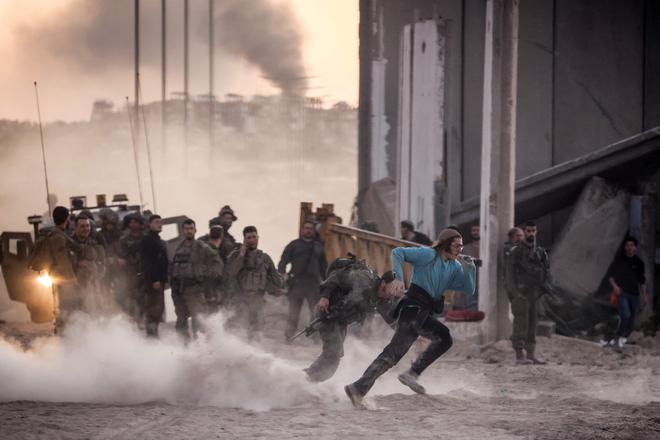
On February 29, Israeli forces open fire on desperate residents of northern Gaza who rush towards a convoy of food aid trucks, saying they believed they “posed a threat”. Gaza’s health ministry says 115 people were shot dead and hundreds wounded in what it calls a “massacre”.
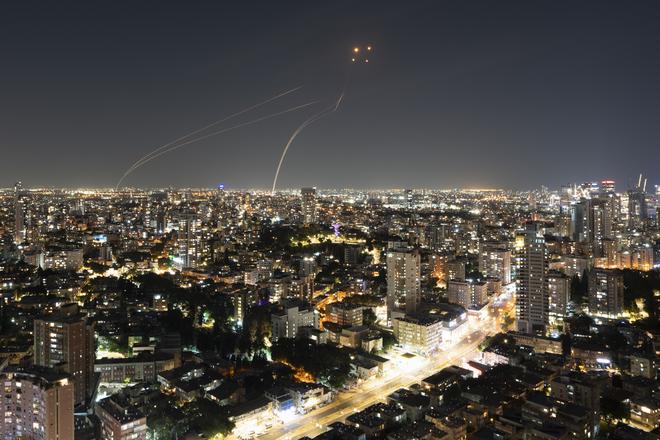
At dawn on October 7, at the end of the Jewish holiday of Sukkot, hundreds of Hamas fighters infiltrate Israel from Gaza by land, sea and air. They kill civilians in the streets, in their homes and at a desert music festival, and attack troops in army bases. They bring around 250 hostages back to Gaza, some of them now dead. Israel vows to destroy Hamas and begins bombing Gaza.
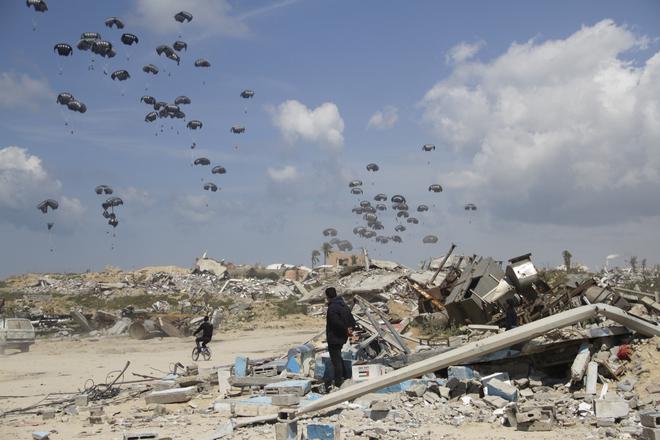
Humanitarian aid is airdropped to Palestinians over Gaza City, Gaza Strip on March 25, 2024.
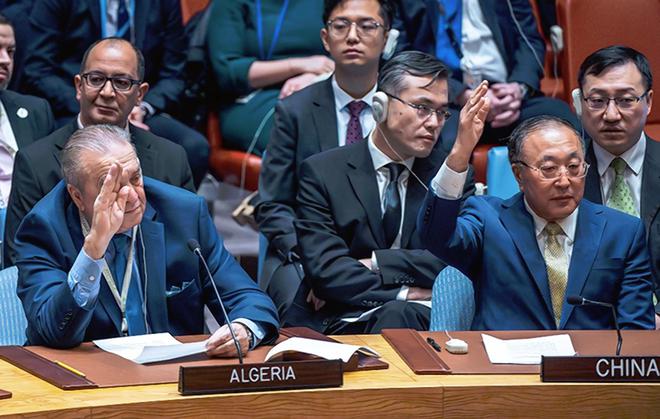
The US, Jordan and other countries begin airdropping food into Gaza. On March 15, the first food shipment along a new maritime corridor arrives in Gaza.
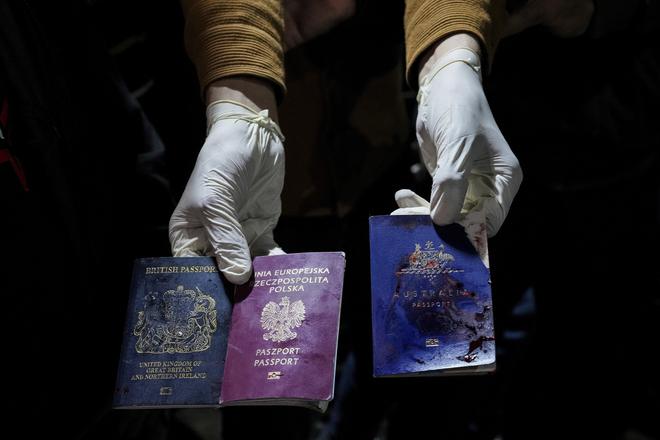
On April 2, seven aid workers from the US charity World Central Kitchen are killed in an Israeli strike when leaving a warehouse in central Gaza where they had just unloaded a portion of food aid from a ship. The dead are Australian, British, Palestinian, Polish and US-Canadian.
1/3
“We believe in one Palestinian government that should be in charge of the West Bank and Gaza,” Qatari Prime Minister Sheikh Mohammed bin Abdulrahman Al-Thani said on Tuesday.
The transition should “not affect the Palestinian cause” or “undermine the Palestinian Authority”, he told the Qatar Economic Forum in Doha.
In March, the Palestinian President approved a government led by newly appointed Prime Minister Mohammed Mustafa, who wants it to play a role in post-war Gaza. However, the biggest roadblock, according to Abdulkhaleq Abdulla, a prominent Emirati analyst, is the Israeli government. He noted that Arab outreach efforts have also included the Israeli opposition.
Earlier this month, the UAE’s Foreign Minister met Israeli Opposition leader Yair Lapid in Abu Dhabi. They discussed the need for negotiations on a two-state solution, according to a statement from the UAE Foreign Ministry. “There are promises that if the Israeli opposition prevails in (early) elections it may be more amenable and more cooperative,” Mr. Abdulla said. Arab leaders have largely ruled out taking part in the governance of Gaza or sending security forces under current conditions.
On Saturday, UAE Foreign Minister Sheikh Abdullah bin Zayed Al-Nahyan said the country “refuses to be drawn into any plan aimed at providing cover for the Israeli presence in the Gaza Strip”.
Last month, Jordanian Foreign Minister Ayman al-Safadi said Arab states would not send troops to Gaza to avoid being associated with the “misery that this war has created”.
“As Arab countries, we have a plan. We know what we want. We want peace on the basis of the two-state solution,” he said in Riyadh. Oil-rich Gulf states Saudi Arabia and the UAE are also hesitant to cover the reconstruction costs without guarantees. “They certainly don’t want to just be a piggy bank. They’re not willing to just clean up Israel’s mess and just pour money into it,” said Bernard Haykel, an expert on Saudi Arabia at Princeton University.
The UAE’s ambassador to the United Nations, Lana Nusseibeh, said in February: “We cannot keep refunding and then seeing everything that we have built destroyed.”


